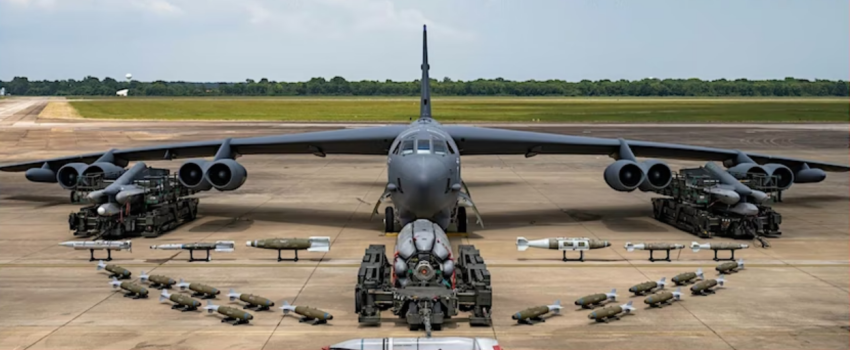
The Independent and Peaceful Australia Network (IPAN) held its annual general meeting and conference over November 22–24.
“Charting our own Course: Next steps towards an independent and peaceful Australia” included a screening of a partially completed new documentary by David Bradbury, The Road to War, which focused on the United States’ preparations for nuclear war in the late 1950s and 1960s.
Following Wakka Wakka woman Tjanara Goreng Goreng’s welcome to country, a panel addressed the Australia-US military alliance, which aims to “contain” China.
Dr David Brophy said the new Labor government had an opportunity to chart a new foreign policy, but its “changes” were more about tone than anything substantial. Despite Labor’s criticism of China’s aid agreement with the Solomon Islands, its own agreements hardly differed, he said.
When in opposition Richard Marles had reiterated Labor’s bipartisanship on defence including supporting: US military build-up in the Pacific Ocean; President Joe Biden’s policy of containing China; and allowing US troops, warplanes and navy ships on Australian soil.
Brophy said such a policy is “unviable, dangerous and immoral”. Human rights will not be advanced by Australia stationing nuclear-capable B52 bombers, he said.
Richard Broinowski, a former head of ABC Radio Australia and a former diplomat, said Prime Minister Anthony Albanese and Biden agree on US hegemony and warned against getting into a new war “we cannot win”. He criticised Marles for believing that “not only do we have to be in sync with the US, but also interchangeable”.
On the AUKUS submarines, Broinowski said: “Australia doesn’t have the technology to build or run [nuclear-powered] submarines, or to dock them, [just] as we don’t have the technology to store the radioactive waste.”
He said if the US supplied the nuclear-powered submarines, Australia would “lose what limited naval sovereignty we have over our naval forces”.
“They will be crewed by people trained in the US, will have worked together with US naval personnel and be ‘interchangeable’ with them.” He said given that the “US has a fundamental problem of distance across the Pacific Ocean, and therefore a problem of supply lines for their military,” Australia will become the US’ main supply base.
Broinowski said the Taiwan issue is “one of sovereignty for China”. While disappointed in Labor for “being so aligned with the US” he commended foreign affairs minister Penny Wong for “maintaining a dialogue with China”.
A panel of union activists from the Queensland Nurses and Midwives Union, the Electrical Trades Union (Queensland/NT) and the Maritime Union of Australia (Queensland) and Dr Lachlan Clohesy of the National Tertiary Education Union (ACT) discussed how unions needed to become more active in questioning Australia’s defence and involvement in any new wars.
IPAN also launched its People’s Inquiry: Charting Our Own Course: Questioning Australia’s involvement in US-led wars and the Australia-United States alliance.
The 108-page inquiry includes a range of policy recommendations, including collecting data on foreign militaries’ assaults on Aboriginal and Torres Strait Islander peoples and engaging in meaningful modern treaties with them.
It suggested redefining “defence” and “security” to include concepts of “human security” and “common security”. It wants the existential threat of climate change and nuclear war to be urgently prioritised and Australia to sign and ratify the United Nations Treaty on the Prohibition of Nuclear Weapons.
It said preventing a new cold war between the US and China was urgent, and that Australia should focus on diplomacy for national security. It said the community needed to be consulted on a new defence policy, that does not include foreign assistance.
It said the Australian parliament must become the authority to commit military forces overseas, not the executive. It called for the ANZUS Treaty to be “reviewed and renegotiated” and for foreign military bases to be removed. It explicitly rejected the use of all nuclear weapons.
The conference passed a resolution that called on Labor “to pursue a genuinely independent and peaceful foreign policy and build relations with nationals of our region and beyond based on mutual respect and mutual benefit to create an Asia Pacific Zone of Peace”.
Specifically, it urged the federal government to: cease preparations with the US for war against China; state that Australian territory and the Australian Defence Force will not be used to support such a war; cancel the proposed acquisition of nuclear-powered submarines; sign and ratify the UN Treaty on the Prohibition of Nuclear Weapons; and re-prioritise spending from war preparations to instead address climate change and other urgent social needs.
No War No AUKUS ACT and Extinction Rebellion Peace Australia protested outside the offices of five major Australian and US armaments corporations, including Lockheed Martin on November 24.
[An online forum, B52s-An Act of War, organised by the Sydney Anti-AUKUS Coalition will hear from Professor Richard Tanter, Kieran Finnane, Justin Tutty and Chips Mackinolty on December 14, 6-7.30pm. Tickets available here.]